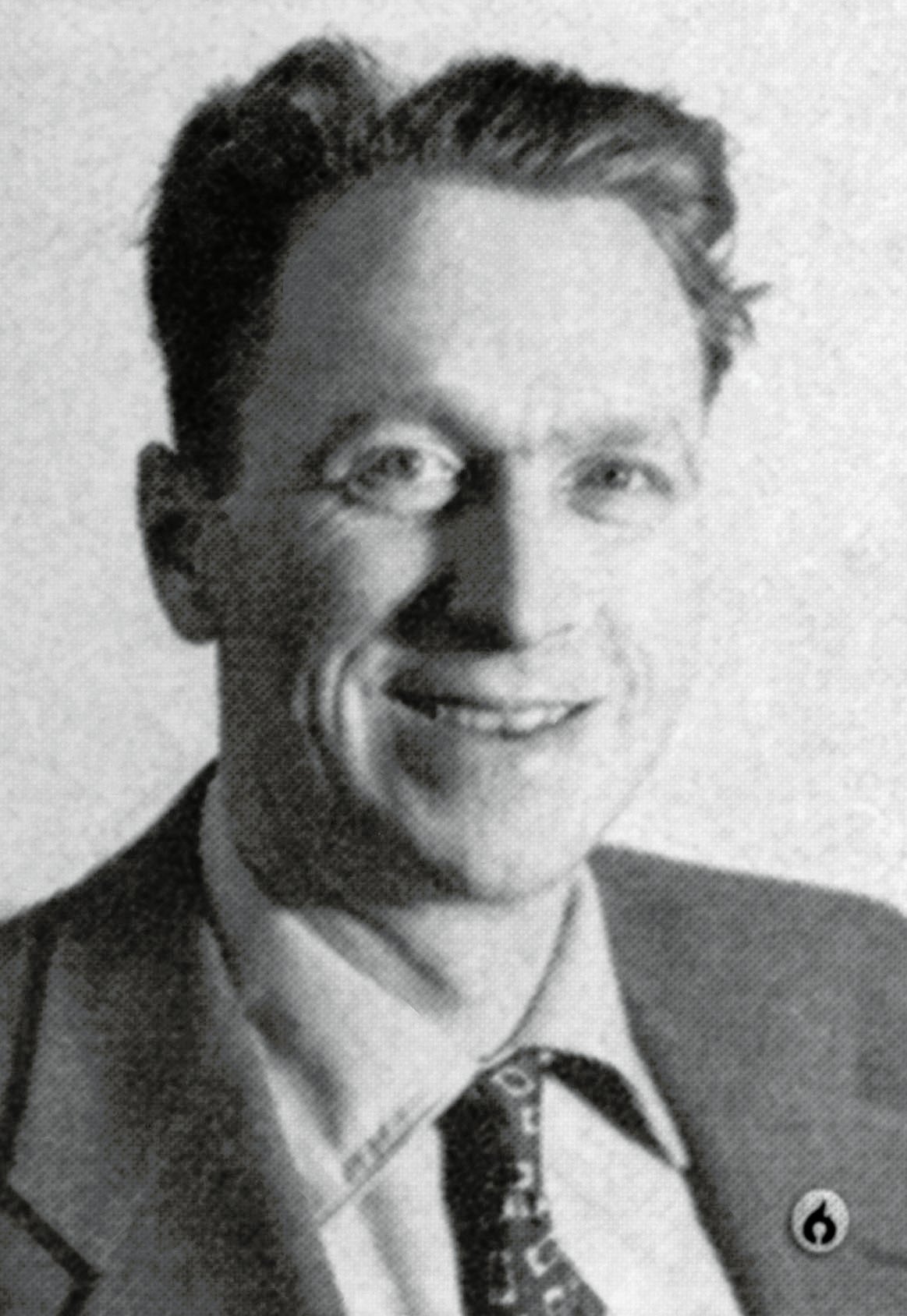No products in the cart.
The following article was originally published in the March 1955 issue of Imagination: Stories of Science and Fantasy.
When William Hamling1William Lawrence Hamling (1921–2017) was an American writer and publisher of both science fiction digests, and adult magazines and books, active from the late 1930s until 1975. proposed that I turn out this thumbnail sketch of myself, my first thought was that any guy who has been cluttering up the science fiction magazines for twelve long years hardly needs any introduction. But William hastily pointed out that while a million or more words speaks for itself, not a word of them tell much about the man who did the deed. At this I indulged in some higher mathematics and came up with a grand average of about a hundred thousand words per year since 1942, which is no great shakes for any writer. So maybe a word of explanation is in order.
I shall now enter the competition for the Grand Prize by completing the statement, “I write Science Fiction because—” in twenty-five words or more. But first, a Word from your Correspondent!
By the time you read this, I shall be shoving the age of Forty-Four hard and close. This puts me a solid twenty years in the electronics engineering field, with some years before that of amateur interest. I was among those kids who wound doorbell wire around an Oatmeal Box back in the mid-Twenties; and who listened to the famous Dempsey-Tunney “Long Count” heavyweight battle2The Long Count Fight, or the Battle of the Long Count, was a professional boxing 10-round rematch that took place on September 22, 1927, at Soldier Field in Chicago between world heavyweight champion Gene Tunney (1897–1978) and former champion Jack Dempsey (1895–1983), which Tunney won in a unanimous decision. “Long Count” is applied to the fight because when Tunney was knocked down in the seventh round the count was delayed due to Dempsey’s failure to go to and remain in a neutral corner. Whether this “long count” actually affected the outcome remains a subject of debate. on a radio set of my own build. Atoms were still indivisible when I first became intrigued with the notion of science, and the proposal of the “Expanding Universe” was still a new idea. The 100 Inch Telescope on Mount Wilson had just provided some evidence that certain spiral, misty clouds were actually distant galaxies made up of billions of stars collected into “Island Universes” similar in size and shape to our own galaxy. Early hints were coming in that a new outermost planet had been discovered; Pluto was confirmed and named just in time to cinch my interest in science. I majored in physics and mathematics, and took some minor courses in astronomy and celestial mechanics.
This background puts me in an exclusive but diminishing club of science fiction writers who can fall back upon their training for their science. Of course, the day when science fiction had to be liberally peppered with snibbets and bits of science — both honest fact and bafflegab — is diminishing too. And while this makes for a more interesting story line, let’s face one fact: You can’t eliminate science from science fiction and still have science fiction. And so the possession of a technical background helps any writer stay away from gross errors, as well as provide an air of verisimilitude even to those spots still remaining where fact must give way to their imagination.
As an author, however, I lack the standard colorful background. I’ve never hunted walrus, slung hash in the Andes, mined gold (or uranium), nor piloted a bulldozer. I don’t wear a beard and I don’t fancy red checkered shirts. I have yet to spend a night in jail, although I did once collect a traffic ticket for jaywalking in Cincinnati, where crossing the street is apparently illegal.
This mundane and conventional life of mine may be the cause of my only turning out about a hundred thousand words per year. I’m sure I could do better if my life were more complicated. So now with this explained, we’ll get back to the original question:
I Write Science Fiction Because—
- I fell heir to a typewriter in 1942 and I’m the kind of guy who can’t stand to see machinery grow rusty from disuse.
- Rumor holds that magazines pay money for printable material. This rumor is true, although it is also true that some rumors are louder than others.
- There aren’t enough of the kind of story I prefer; I have helped to fill this crying need by writing yarns that I like to read.
And so a review of the past twelve years indicates that there are just enough people who agree with Item 3 to make Item 2 provide me with three subsequent replacements to Item 1.
Hoping you are the same—
—George O. Smith
P.S. Check out Hellflower.

George O. Smith
- Meet the Author
- 4 Minute Read
@heatheneditions #heathenedition
Copyright © 2025 Heathen Creative, LLC. All rights reserved.
